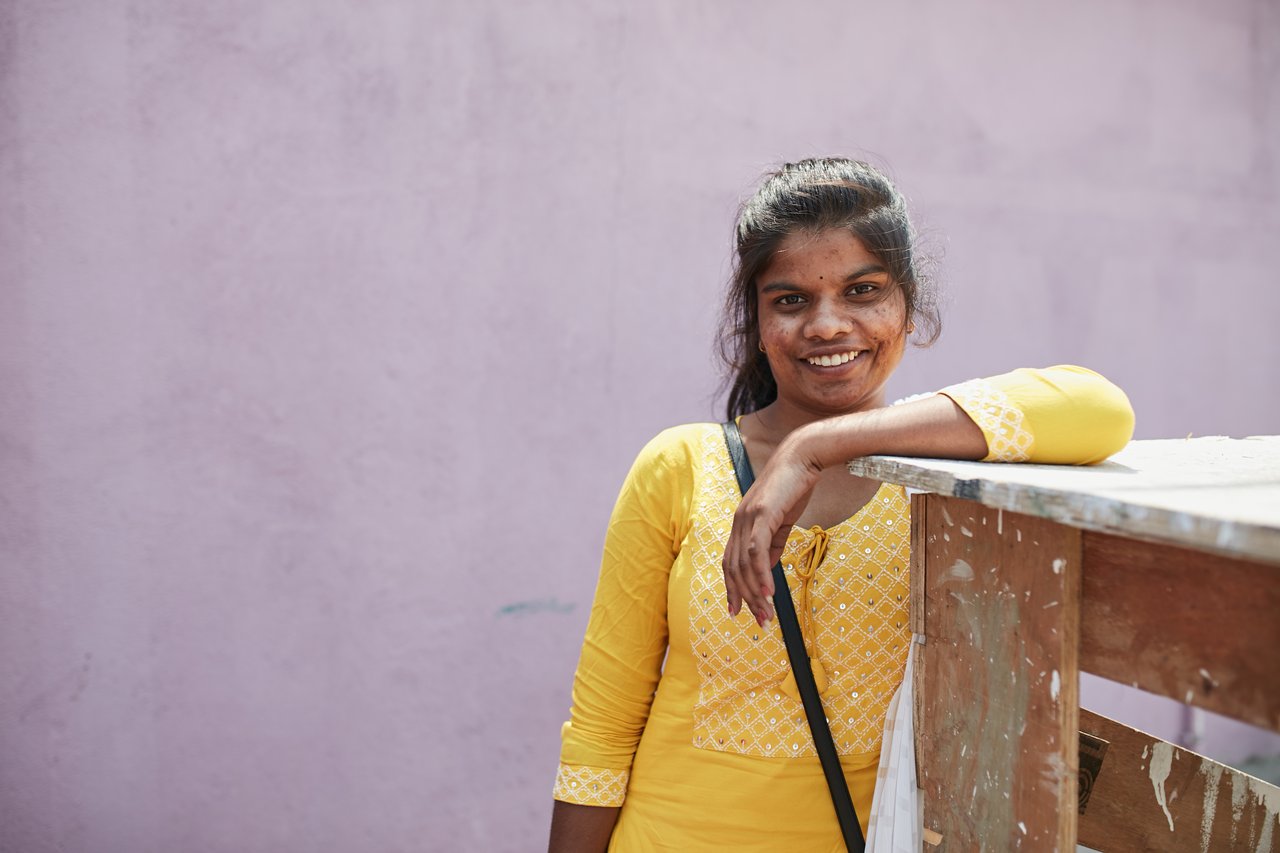Ranjita's Story

In 2012, Ranjita’s family faced a crisis. Drought had devastated their village in western Odisha, and with no stable income, they were forced to consider migrating for work—something common in their community. When a labour agent offered an advance of 90,000 rupees (AUD $1,500) for work at a brick kiln near Bangalore, it seemed like their only lifeline. Twelve-year-old Ranjita remembers the excitement of boarding the train. “There were other children travelling with us—it felt like a vacation,” she recalls. But that hope quickly turned into a nightmare.


Trapped in Bonded Labor
The promised money never came. The kiln lacked basic housing and water, forcing 60 labourers and 10 children to live in makeshift tarpaulin tents. Ranjita and the other children were forced to turn clay bricks under the scorching sun, working long hours without pay and under threat of violence. When the situation came to light, IJM and local authorities intervened. But the kiln owner hid the children in a nearby forest before the rescue team arrived. Determined officials combed the area, found the children, and reunited them with their parents. The owner and two associates were arrested, and all families were brought safely home.
With IJM and partner support, the survivors accessed government rehabilitation programs, receiving housing, food rations, and aftercare services. The experience shaped Ranjita’s future. Determined to give back, she became one of six COVID-19 Relief Coordinators during the pandemic, trained and supported by IJM. She educated survivor communities about the virus, distributed hygiene kits and food, and raised awareness about the dangers of unsafe migration and human trafficking. Today, Ranjita is a respected leader in her village. She often shares her story at public events and collaborates with government officials to advocate for survivors’ rights. Her personal journey has become a powerful tool for change.
“I really like social work,” she says. “I couldn’t support my community with money, but I can at least serve them in this way. It gives me so much joy. I’ve worked in other professions, but none have been as fulfilling as this.”
Ranjita’s story is not just one of survival, but one of perseverance and leadership—showing that survivors of bonded labour can become powerful agents of change.
After more than 20 years in India, IJM has:
Helped bring over 422,500 people to freedom*
Supported more than 5,300 survivors through aftercare since 2014
Trained over 177,000 justice officials and community leaders
To help bring this reality to people across India and across the globe IJM is:
• Rescuing victims from slavery and providing aftercare that supports their long-term recovery and empowers them to thrive.
• Running training sessions across the country to equip survivors and their families to understand their rights and recognise the signs of bonded labour.
• Offering legal support to survivors so that perpetrators are held accountable with just sentences, preventing them, and others, from committing further crimes.
Together, we can move faster, reach farther, and bring lasting change.
Thank you for walking with us. Will you take the next step today and donate to IJM?
*42,500 people were brought to freedom through rescue operations in India. From 2014 to 2021, IJM’s program helped the Tamil Nadu state government achieve an 81.9% relative reduction in the prevalence of bonded labour. This led to the freedom of an estimated 380,000 people who had been trapped in bonded.